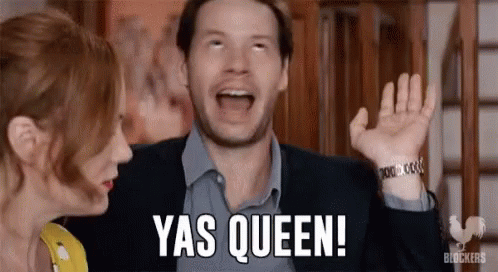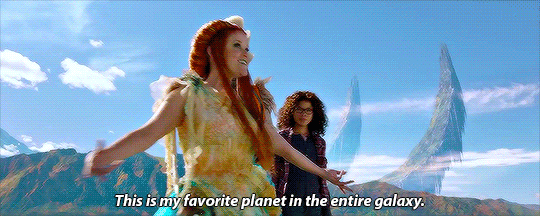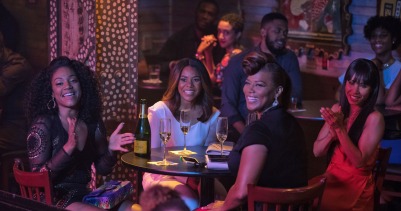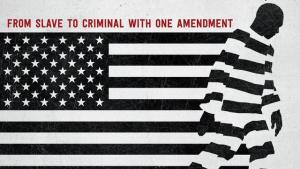10. The Land of Steady Habits: Nicole Holofcener directs some layered, complex performances, especially from Ben Mendelsohn, who plays a man flexing his cringe-worthy mid-life crisis. The film ends up achingly authentic and deeply bittersweet.
9. Blockers: Kay Cannon is the woman behind one of the few comedies I laughed at in 2018, and its box office makes clear I wasn’t the only one. It’s both a teen comedy and an empty-nest one, and manages to be funny, irreverent, and modern about both. Cannon’s cast is loose, and the jokes land handily, the script smart and quick.

8. Outside In: Lynn Shelton gets some moving and tender performances out of Jay Duplass, who plays a man just released from prison, and Edie Falco, who plays his high school teacher who hastened his release. Their story is absorbing and empathetic, and Shelton teases some naked tension out of it, keeping us in her grip.
7. Private Life: Tamara Jenkins sneaks us behind closed doors to see witness adulthood and marriage as they are rarely seen. In the throes of fertility struggles, Kathryn Hahn and Paul Giamatti give truly fine, heartbreaking performances.
6. What They Had: Elizabeth Chomko delivers a film that’s hard to look away from. Blythe Danner plays a woman with Alzheimer’s while her family (Robert Forster, Michael Shannon, Hilary Swank), swell and melt around her. It’s a real family drama that’s familiar and necessary.
5. The Kindergarten Teacher: Sara Colangelo justifies her American remake by packing a real punch and eliciting a wonderful performance from Maggie Gyllenhaal. This is one film that kept unfolding itself even after it was over, as it stayed in my thoughts for days.
4. A Wrinkle In Time: Ava DuVernay bravely adapted a beloved children’s book and ended up modernizing it, giving it relevance, and making an enduring, beautiful film that can be enjoyed by audiences of all ages.

3.You Were Never Really Here: Lynne Ramsay deals us a real swift punch with her gutsy, bold film, and proves she has a bracingly unique cinematic eye. Joaquin Phoenix’s performance is riveting.
2. Leave No Trace: Debra Granik dares to mold this dramatic story into a quiet, low-key film that demands little yet accomplishes much – everything. Leads Ben Foster and Thomasin McKenzie have terrific chemistry that sprinkles the film in authenticity.
1. Can You Ever Forgive Me: Marielle Heller promises a lot with her premise, but manages to deliver even more. This movie worked for me on so many levels. The story is compelling. Melissa McCarthy is at her very best. It’s frequently laugh-out-loud funny. It’s a platonic LGBTQ love story with the unlikeliest, unlikable heroine, yet she’s always treated with dignity and empathy, and we can’t help but adore her, even in her crankiness.

 working on a theory about a tesseract, which would involve “wrinkling” time and space in order to travel through it. One dark and stormy night, a mysterious woman named Mrs. Whatsit appears to tell Meg, her friend Calvin, and Meg’s little brother Charles Wallace, the child genius, that she has heard her father calling out to them through the universe. Turns out, Mrs. Whatsit and her friends Mrs. Who and Mrs. Which are supernatural beings prepared to engage in a rescue mission.
working on a theory about a tesseract, which would involve “wrinkling” time and space in order to travel through it. One dark and stormy night, a mysterious woman named Mrs. Whatsit appears to tell Meg, her friend Calvin, and Meg’s little brother Charles Wallace, the child genius, that she has heard her father calling out to them through the universe. Turns out, Mrs. Whatsit and her friends Mrs. Who and Mrs. Which are supernatural beings prepared to engage in a rescue mission. make the book wonderful, but it also paints a fantastic picture that I cannot stop myself from going back to in my mind. The visuals are exotic and beautiful and the world-building just divine. I can only guess at the kind of impression it makes on young imaginations.
make the book wonderful, but it also paints a fantastic picture that I cannot stop myself from going back to in my mind. The visuals are exotic and beautiful and the world-building just divine. I can only guess at the kind of impression it makes on young imaginations. of bankruptcy and the only thing that might save her is a whole bunch of hits to her celebrity gossip site…and it’s awfully tempting when your best friend is poised to become the next Oprah just as her marriage is imploding. Lisa (Jada Pinkett Smith) is a less important friend so we don’t know much about her except she’s a caring single mother who wears scrubs at work and is pretty high strung. And Dina (Tiffany Haddish) is hardly a character at all, she’s just there to provide the kind of lewd laughs the other ladies are too famous for, contractually. It’s hard to believe they were ever friends, or that a weekend away together wouldn’t result in murder since in the film’s exceedingly long but comparatively short running time (2 hours), I had the panicky urge to start stuffing people in dumpsters.
of bankruptcy and the only thing that might save her is a whole bunch of hits to her celebrity gossip site…and it’s awfully tempting when your best friend is poised to become the next Oprah just as her marriage is imploding. Lisa (Jada Pinkett Smith) is a less important friend so we don’t know much about her except she’s a caring single mother who wears scrubs at work and is pretty high strung. And Dina (Tiffany Haddish) is hardly a character at all, she’s just there to provide the kind of lewd laughs the other ladies are too famous for, contractually. It’s hard to believe they were ever friends, or that a weekend away together wouldn’t result in murder since in the film’s exceedingly long but comparatively short running time (2 hours), I had the panicky urge to start stuffing people in dumpsters.
